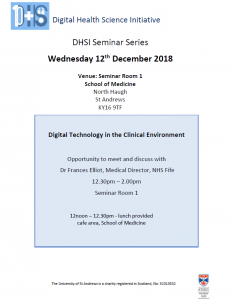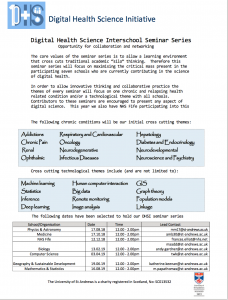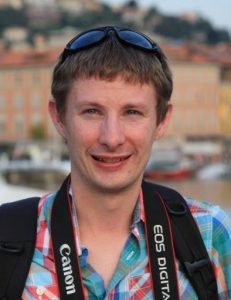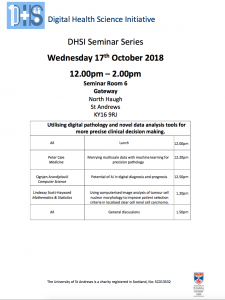Seminar Details
Using Intensive Longitudinal Methods to Study Fear of Breast Cancer Recurrence in Everyday Life
Jean-Philippe Laurenceau, Ph.D.
Venue: Seminar room 1
Date: 14 January 2019
Time: 3-4pm.
Intensive longitudinal methods (also called experience sampling, daily diary, or ecological momentary assessment methods) allow researchers to study people’s health-related behavior, thoughts, and emotions as experienced in their natural contexts. Such data can reveal life as it is actually lived and provide insights that are not possible using conventional experimental or survey research methods. Dr. Laurenceau will review several findings from a study consisting of twice daily assessments of fear of cancer recurrence over 21 days obtained from breast cancer patients and their spouses/partners at key points in the cancer survivorship trajectory. This type of intensive longitudinal research design allows estimation of effects reflecting within-person change (versus between-person differences) in health-related outcomes and supports inferences that have high ecological validity, clinical relevance, and patient focus.
Refreshments will be served from 2.45pm.
Please note if you would like to attend the workshop, please let Karen Hunter know so that she can ensure there is enough space.
Workshop Details
Introduction to Analysing Intensive Longitudinal Data
Jean-Philippe Laurenceau, Ph.D.
Venue: Level 3 meeting room
Date: 14 January 2019
Time: 1-2pm
Intensive longitudinal methods (also called experience sampling, daily diary, or ecological momentary assessment methods) produce data that allow researchers to study people’s behavior, thoughts, and emotions as experienced in their natural contexts. The multilevel or mixed-effects model for longitudinal data is a flexible analytic tool that can take account of complexities stemming from the multiple levels of analysis and temporal dependencies in the data. The goal of this workshop is to provide an overview of a full-cycle treatment of two fundamental research questions that can be addressed using intensive longitudinal methods: (a) What is the time course of the outcome variable, and (b) what is the within-person causal process that underlies the time course? A full-cycle treatment will take workshop participants through five stages of answering each research question: (1) Design study & collect data, (2) Visualize, (3) Analyze, (4) Write up results, and (5) Power the next study. Material for this workshop will be drawn from introductory sections of the presenter’s 2013 Guilford Press book “Intensive Longitudinal Methods: An Introduction to Diary and Experience Sampling Research” (www.intensivelongitudinal.com). Using SPSS and Mplus statistical software, attendees can follow along with the examples in the workshop handout or conduct analyses on their own laptops.
Dr. Jean-Philippe Laurenceau is Unidel A. Gilchrist Sparks III Chair in the Social Sciences and Professor of Psychological & Brain Sciences at the University of Delaware. He is also Senior Research Scientist at CCHS’s Helen F. Graham Cancer Centre and Research Institute. He completed his B.A. cum laude at Cornell University and received his master’s and doctorate degrees from The Pennsylvania State University. Recently, Dr. Laurenceau has been studying how patients and spouses/partners cope with and maintain connection amid health-related adversity, including breast cancer and diabetes. He was an appointed member of a social and behavioural sciences grant review panel of the National Institutes of Health and has been PI or co-I on several research projects funded by the National Institute of Mental Health, National Institute of Child Health and Human Development, and the National Cancer Institute. He regularly teaches methodological workshops at the University of Michigan’s Summer Program in Quantitative Methods of Social Research and at Penn State’s Summer Institute for Longitudinal Methods. Dr. Laurenceau is co-author of the book “Intensive Longitudinal Methods: An Introduction to Diary and Experience Sampling Research” (2013, Guilford Press).
Event details
- When: 14th January 2019
- Where: N Haugh, St Andrews
- Format: Seminar






